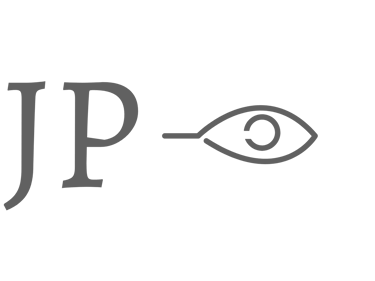Eternal Children, Fantasy, & the Self-fulfilling Prophecy
The new generation of young adults are the largest contributors to the recent 25% spike in rates of both anxiety and depression, an inexorable outcome of a four-year global pandemic (Kupcova et. al., 2023). Two related facets of young adults have developed in light of the modern plague: 1) hermitic agoraphobia, and 2) a widespread resistance to the standard working culture of prior generations. Japanese metropolises have become notorious for their ironic tendency to house citizens so close in proximity while perpetuating a severe (and growing) social withdrawal. The term Hikikomori (literal translation: "pulling inward, being confined") was coined to characterize young adults who seclude themselves in the homes of their caretakers and remain overly dependent, unwilling to work or attend school for indefinite periods of time. However, Japan is far from the only nation enduring this crisis: The United Kingdom have categorized reclusive adults as NEETs (young adults with “No Experience, Education, or Training”); Spain calls them NiNis (“Ni estudia, Ni trabajo”); Italy have donned them with the disparaging title, Bamboccioni (“big stuffed babies”).
Perhaps the most organized movement spearheading this anti-industrialist coalition is the Tang Ping (literal translation: “laying flat”) in China, who—at face value—vow a personal rejection of societal pressures to overwork and overachieve. The movement adopts a low-desire, indifferent attitude towards life in stark contrast to the existing 996 working hour system (9:00am to 9:00pm, 6 days per week) set in place by the prior generations. According to the Washington Post (2021), the movement have dubbed themselves an “ideological emancipation” from “the rat race” of consumerism. However, the nature of Tang Ping—building off the observationalism principles of Zen—has been perverted into an unapologetically slovenly demeanor toward life, a reluctance to set goals or pursue lasting satisfaction, and an apathy leading to cognitive dissonance which is inaccurately equated to victimhood. The internet has crafted several quirky neologisms for this involution that minimize its severity; most notably: Goblin Mode. However, psychologists consider this a contagious "failure to launch" (Lebowitz, 2016).
Marie-Louise von Franz (1981) revived the term Puer Aeternus (literal translation: “eternal child”) to depict the archetype of adult who resists individuation and combats their drive toward psychological soundness, altogether preserving the fantasies of youth and stunting their growth. Modern American literature commonly refers to this condition of the psyche as Peter Pan Syndrome. The pathology of the eternal child is to anticipate suffering in an effort to soften the blow of failure and subsequently avoid disappointment. Engaging in this logic ultimately draws the user into a reflective, isolated state of hyperconsciousness where the expectation that they will fail matures into foreclosure. Thus, the eternal child either manifests failure through self-destruction or doesn’t try at all. Commonly employed justification for this behavior is “Why try at all if I know I can’t do it?” Lastly, as a result of their paralytic inferences, the eternal child descends into a deep inner discord, and the only way to resolve such internal strife is to find a source to place blame. They cannot blame themselves because that would defy the narcissistically deflated logic that they’re incapable of achieving success. Instead, they blame others, they blame reality, they blame life, for being so darn difficult in the first place. Hence, their separation from others, from reality, and from life. The only place left for the eternal child to experience success in any capacity at all and obtain sparse moments of gratification is within the provisional realms of fantasy and delusion. This is their safe space, so they indulge in it as much as possible, and in doing so, reject the real world in its entirety.
"Fear is a challenge and a task, because only boldness can deliver from fear. And if the risk is not taken, the meaning of life is violated" (Jung, 1952). The fortifications of the child’s nest become the perimeter of their prison if they never force themselves to fly. Oedipus Rex never ventured far from home and look how he ended up—the perennial symbol of the mommy complex. If you find yourself struggling to grow up, ask yourself what comforts you're willing to part with in order to try harder. A life without challenges is seldom a satisfying one; maybe it's time to move a little further from home.
References:
Jung, C. (1952). The Collected Works of C. G. Jung, Vol. 5, Symbols of Transformation. Princeton University Press.
Kupcova, I.; Danisovic, L.; Klein, M.; Harsanyi, S. (2023). Effects of the COVID-19 pandemic on mental health, anxiety, and depression. BMC Psychology, 11(1), p. 108.
Lebowitz, E. (2016). "Failure to Launch": Shaping Intervention for Highly Dependent Adult Children. Journal of the American Academy of Child and Adolescent Psychiatry, 55(2), p. 89–90.
Von Franz, M.-L. (1981). Puer Aeternus: A Psychological Study of the Adult Struggle with the Paradise of Childhood. Sigo Press.
"Young Chinese take a stand against pressures of modern life — by lying down". The Washington Post. June 5, 2021.
